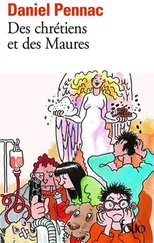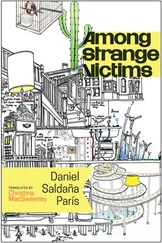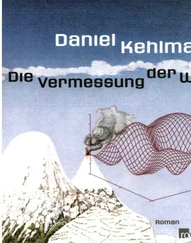“Rejections?”
“A few.”
“That’s bad.”
“No, it doesn’t matter.”
“It doesn’t bother you at all?”
“I’m not that ambitious.”
“Really?”
Arthur said nothing.
“You don’t look as if you’d settle for a little. You might want to believe that of yourself, but actually you don’t. What do you really want? We’re all friends here. What do you want?”
“To get away.”
“From here?”
“From everywhere.”
“From home?”
“From everywhere.”
“It doesn’t sound as if you’re happy.”
“Who’s happy?”
“Please answer.”
“No.”
“Not happy?”
“No.”
“Say that again.”
“I’m not happy.”
“Why do you stick it out?”
“What else is there to do?”
“Run?”
“You can’t just keep running.”
“Why not?”
Arthur didn’t reply.
“And your children? Do you love them?”
“You have to.”
“Right. You have to. All of them equally?”
“Ivan more.”
“Why?”
“He’s more like me.”
“And your wife? We’re all friends here.”
“She likes me.”
“That wasn’t the question.”
“She earns money for us, she takes care of everything, where would I be without her?”
“Free perhaps?”
Arthur said nothing.
“What do you think of me? You didn’t want to come up onto the stage, and now you’re standing here. You thought it wouldn’t work on you. What do you think now? For example, of me?”
“A little man. Insecure about everything, which is why you are what you are. Because without all this here, you’d be nothing. Because you stutter whenever you’re not up here.”
Lindemann was silent for a while, as if giving the audience the chance to laugh, but there wasn’t a sound. His face looked white and waxy; Arthur stood very straight, his arms by his sides, stock-still.
“And your work? Your writing? Arthur, what is it with all that?”
“Not important.”
“Why not?”
“A hobby. No reason to fuss about it.”
“It doesn’t bother you that your work doesn’t get published?”
“No.”
“That you aren’t any good? It doesn’t bother you?”
Arthur took a small step back.
“You think you have no ambition? But maybe it would be better if you did, Arthur. Maybe ambition would be an improvement, maybe you should be good, maybe you should admit to yourself that you want to be good, maybe you should make the effort, maybe you should work at it, maybe you should change your life. Change everything. Change everything, Arthur. What do you think?”
Arthur said nothing.
Lindemann moved even closer to him, went up on tiptoe and put his face close to Arthur’s. “This superiority. Why make the effort, is what you’ve always thought, isn’t it? But now? Now that your youth is over, now that everything you do carries weight, now that there’s no time to be casual anymore, what now? Life is over very quickly, Arthur. And it gets squandered even more quickly. What needs to happen? Where do you want to go?”
“Away.”
“From here?”
“From everywhere.”
“Then listen to me.” Lindemann put a hand on Arthur’s shoulder. “This is an order, and you’re going to follow it because you want to follow it, and you want to because I’m ordering you, and I’m ordering you because you want me to give the order. Starting today, you’re going to make an effort. No matter what it costs. Repeat!”
“No matter what it costs.”
“Starting today.”
“Starting today,” said Arthur. “No matter what it costs.”
“With everything you’ve got.”
“No matter what it costs.”
“And what just happened here shouldn’t bother you. You can think back on it quite cheerfully. Repeat.”
“Cheerfully.”
“And it really isn’t important. It’s all a game, Arthur, just fun. A way to pass the time on an afternoon. Just like your writing. Like everything people do. I’m going to clap my hands three times, then you can go and sit down.”
Lindemann clapped his hands: once, twice, three times. There was no sign of any change in Arthur. He stood just as he had before, back straight, his neck tilted slightly backward. There wasn’t a sound to be heard. Hesitantly, he turned around and went down the steps. Gradually timid applause broke out here and there, but once Arthur had reached his seat, it crescendoed into a thunder. Lindemann bowed and pointed to Arthur. Arthur imitated him with an empty smile and bowed back.
That was what was so wonderful about his métier, said Lindemann when the noise had finally died down. One never knew what the day would bring, one could never foresee the demands that would be made on one. But now finally for the high point, the star turn. With a light touch on her cheek he woke the sleeping woman and asked what she had experienced.
She sat up, but after a few sentences the excitement took her breath away. She panted, sobbed, gasped for air. In tears, she described a life as a farmer’s wife in the Caucasus, and a hard childhood in the winter cold, she spoke about her brothers and sisters, her father and mother, her husband, the animals, and the snow.
“Can we go?” whispered Ivan.
“Yes, please,” said Eric.
“Why?”
“Please,” said Martin. “Please, let’s go! Please.”
As they stood up, there was the sound of snickering in the audience. Eric clenched his fists and said to himself that he was only imagining it, while Martin understood for the very first time that people could be mean-spirited and spiteful, taking malicious pleasure in things for no reason at all. They could also be spontaneously good, friendly, and supportive, and both these qualities could exist simultaneously in the same person. But above all, people were dangerous. This realization would stay with him permanently, bound up forever with a memory of Lindemann’s face looking down from the stage at their departure, as he polished his glasses with the green handkerchief. At the very moment Martin, bringing up the rear, was leaving the theater, he caught Lindemann’s expression: eyebrows arched, smiling, wet tongue peeping from a corner of his mouth. Then there was a little click and the door closed behind him.
The whole way home, Arthur beat time on the steering wheel and whistled. Martin sat very straight next to him, while Ivan stared out of one window and Eric out of the other. Twice Arthur asked what on earth had upset them, why they’d wanted to leave, and why in the world children found everything so embarrassing, but when no one replied, he just said there were some things he’d never understand. That woman, he cried, that idiotic story about the Russian farm, all laid on far too thick, obviously she worked in cahoots with the hypnotist, childishly easy to see through, who would believe stuff like that! He turned on the radio, then turned it off again, then on again, and then, not very long afterward, off again.
“Did you know,” he asked, “that the condor flies higher than any other birds?”
“No,” said Eric. “I didn’t know.”
“So high that sometimes it’s no longer visible from the ground. As high as a plane. Sometimes so high, that the distance above it is shorter than the distance below.”
“What’s that supposed to mean?” asked Ivan. “Above it to where?”
“You know, above it!” Arthur rubbed his forehead. For a few seconds he steered with his eyes closed.
“I don’t understand,” said Martin.
“What’s there to understand? I’d rather you tell me about school and how it’s going, you never say anything.”
“Everything’s fine,” said Martin quietly.
Читать дальше











